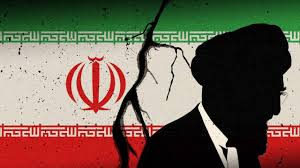
Once hailed as the world’s most trusted broadcaster, the BBC has now become a cautionary tale of what happens when journalism trades truth for ideology. The institution that once prided itself on fairness and professionalism has degenerated into a megaphone for political agendas, a propaganda machine masquerading as public service. Once the “British Broadcasting Corporation,” it now more fittingly earns the name British Biased Corporation.
The BBC’s decline has been on full display in its coverage of Israel and global politics. At the outset of the latest Israel – Gaza conflict in 2023, the network falsely reported that the Israel Defense Forces were “targeting people including medical teams and Arabic speakers” at Gaza’s Al-Shifa Hospital, a reckless accusation that risked inflaming global tensions. Days later, they quietly apologized, admitting the claim was false. The truth? Those medical teams and Arabic speakers were part of the IDF’s operation, not its victims. Such distortion is not a mere “error,” it is propaganda by omission and exaggeration, a deliberate shaping of perception against Israel.

The rot didn’t stop there. The BBC later had to remove its documentary Gaza: How to Survive a War Zone after discovering that its narrator was the teenage son of a Hamas leader, a critical fact the producers conveniently failed to disclose. The UK regulator Ofcom ruled this a “serious breach” of broadcasting rules, warning it had the potential to mislead the public. How could a broadcaster with the BBC’s resources make such “mistakes” twice in one war? The answer is simple, bias has replaced balance, and activism has replaced accuracy.
Then came the final straw. Top leaders at the BBC, Director General Tim Davie and News CEO Deborah Turness, resigned amidst revelations that the flagship programme Panorama misleadingly edited a speech by Donald Trump, aired just before a U.S. presidential election. The leaked internal memo accused the BBC of “serious and systemic” bias across multiple domains, Trump coverage, Gaza reporting, even transgender issues. These resignations cannot simply mark the end of the matter. They must trigger a full investigation into the BBC’s anti-Trump and anti-Israel bias, including the damage inflicted by the corporation’s reporting, the encouragement of anti-Israel marches in the UK and globally, and the cultivation of dissent-suppressing newsroom culture.
This bias is not confined to the Middle East. The same venom the BBC directs at Israel is often reserved for Donald Trump and anyone who challenges the liberal establishment. Its journalists relentlessly amplify anti-Trump rhetoric while ignoring the brutal persecution of Christians in Nigeria, Sudan, and elsewhere. Silence on those stories speaks volumes. When the suffering of Christians is deemed unworthy of airtime, but every accusation against Israel or Trump becomes a headline, it’s clear where the BBC’s sympathies lie. And as critics have pointed out, at the top of the organisation, the rank and file had little choice but to align with managerial rhetoric lest they lose their jobs.
The BBC’s moral collapse is a tragedy for journalism. It has betrayed the trust of millions who once believed in its integrity. These aren’t isolated blunders, they are symptoms of an ideological infection that runs from management down through the newsroom. Real accountability cannot end with resignations. The corporation must face an independent probe, behavioural reforms, and clear consequences. Until the Corporation purges itself of this hypocrisy and returns to the honest pursuit of truth, it will continue its slide into irrelevance. The BBC’s motto once stood for truth and balance. Today, it stands as a monument to the dangers of bias, proof that when the watchdog of democracy joins the mob, the truth becomes its first casualty.




